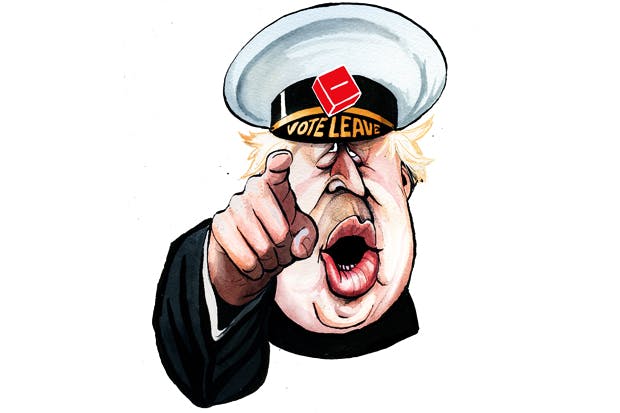On the eve of the five-year anniversary of the Brexit referendum, it’s hard to shake the feeling that Brexit was the dog that never barked. Project Fear portended half a million job losses – a hard measure to test given a year of lockdowns and furlough, but before Covid hit (and now) the unemployment rate is lower than it was five years’ ago. We were warned of a ‘punishment Budget,’ as though there is ever any other kind. The hysteria, the stalling of Parliamentary machinery, the well-documented family rifts – was it all for nothing?
First, a few caveats. There are many problems that still need fixing – especially in Northern Ireland and the service sectors. Delays on the border may worsen once volumes increase (though perhaps not resulting in 29 mile queues, as predicted by Imperial College).
We’ve yet to experience the pain of losing free movement which, along with the added layers of bureaucracy, will be felt most acutely by small and medium-sized enterprises (SMEs). Between winter 2020 and spring 2021, total trade in goods with EU countries, excluding precious metals, decreased by 20.3 per cent (though this should be viewed in the context of bilateral stockpiling prior to the end of the transition period).
But this does not wipe out all the encouraging developments. The UK’s phenomenal vaccine rollout, when compared to the EU’s dying commitment to the precautionary principle, highlights the benefits of having a far more nimble regulator – a key ingredient needed to realise Brexit’s potential.
Five years later, the battle for a freer, fairer world rumbles on
Despite failing to fully capitalise on this success by unlocking sooner (and in theory we could technically have achieved it within the European Union), our quick action and speed has positioned Britain as an attractive destination to do business. 1,000 EU firms are considering opening offices here. The CBI forecasts that our GDP will race ahead of our European rivals, at 8.2 per cent to 4.2 per cent in the eurozone this year.
But the risk remains that, having ‘taken back control,’ politicians will use their new powers to further enlarge the state, as hinted at through plans to increase state aid and Boris Johnson’s weakness for big spending projects. Despite the Prime Minister’s cavalier attitude to our dicey experiment with Modern Monetary Theory, we are in danger of spiralling into a situation where rules and red tape are forever added to the ledger, but almost never scrapped; where regulators continue to stand in the way of change and innovation, rather than adopting a light-touch approach to encourage it.
One regulatory body, the Charity Commission, placed the Institute of Economic Affairs in the eye of the post-referendum storm. Released in September 2018 and receiving more media coverage than any previous British think tank publication, the IEA paper Plan A+: Creating a prosperous post-Brexit UK became known as ‘the Canada Option’ – a viable alternative, among Brexit supporters, to Theresa May’s offering.
Shortly after launch, however, the Commission instructed the IEA to pull Plan A+ from its website and destroy all physical copies. It then issued the IEA with an ‘official warning’, with the Institute forced to withdraw the report and amend it before it could be re-released (a detailed chronology of the battles with that censorious state institution can, from tomorrow, be read in a new IEA paper that maps our path to eventual triumph over the regulator).
Many proposals within the paper – that we should seek membership of the Trade Pacific Partnership (CPTPP), that we should pursue a UK-US free trade deal, that we must deliver regulatory autonomy and set our own standards for both goods and services – have since been adopted or reiterated by senior government ministers.
And more than 60 trade deals have been concluded successfully in recent months. While many of these were effectively securing rollovers from our previous EU arrangements, a good number have been meaningfully augmented. Agreements with Australia and New Zealand will help the UK re-establish itself as a champion of liberal global trade.
But ‘global Britain’ still faces many hurdles, with a mercantilist and militarist China topping the list, putting certain free trade pursuits in peril. Unlike prognostications from some Remainers, this is a threat that may not evaporate on contact with reality. Integrating China into the world economy and encouraging exchange between Western and Chinese firms and individuals has failed to deliver the beneficial consequences of a non-economic type that many hoped. If anything, authoritarianism in China is on the rise.
To mitigate the risk, restraints on sensitive trade and a more robust approach to issues such as China’s policy in Xinjiang could be required. Further, it may become geopolitically imperative, as well as commercially beneficial, for the UK to embark on what will likely be protracted and complex trade negotiations with India. By bringing India into an alignment of nations including members of the CPTPP, it could act as a bulwark against the negative impact of China’s market distortions and security policies.
So five years later, the battle for a freer, fairer world rumbles on. The difference now is that Britain has full control over how it approaches these issues, acting independently (though hopefully often alongside) the EU.
A half-decade ago to the day, an exhausted David Cameron traversed the nation and made a final plea to voters. He warned that Britain outside the EU would be more ‘narrow, insular and inward-looking’. Only by looking outwards, and with a buccaneering, pro-free trade spirit, can we truly thrive after our departure. The challenge for Boris Johnson will be to prove Cameron wrong. It’s a battle he’s been waging since childhood and one that, ultimately, helped get Brexit over the line. But it’s also a battle not yet won.






Comments